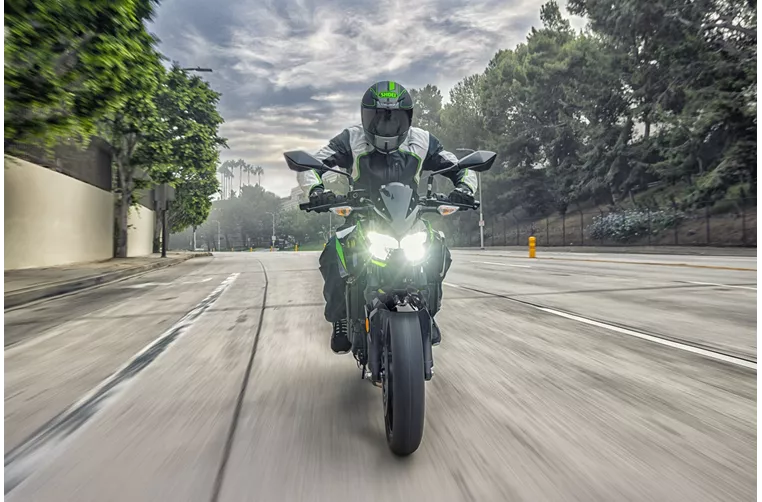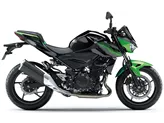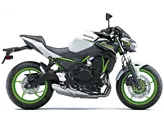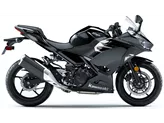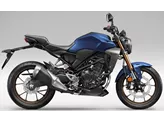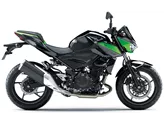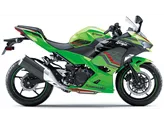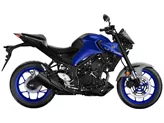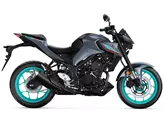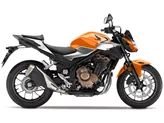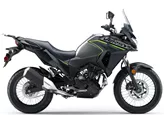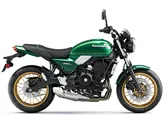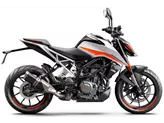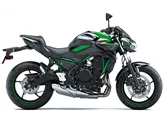Kawasaki Z 300 2016 vs. Kawasaki Z 400 2023
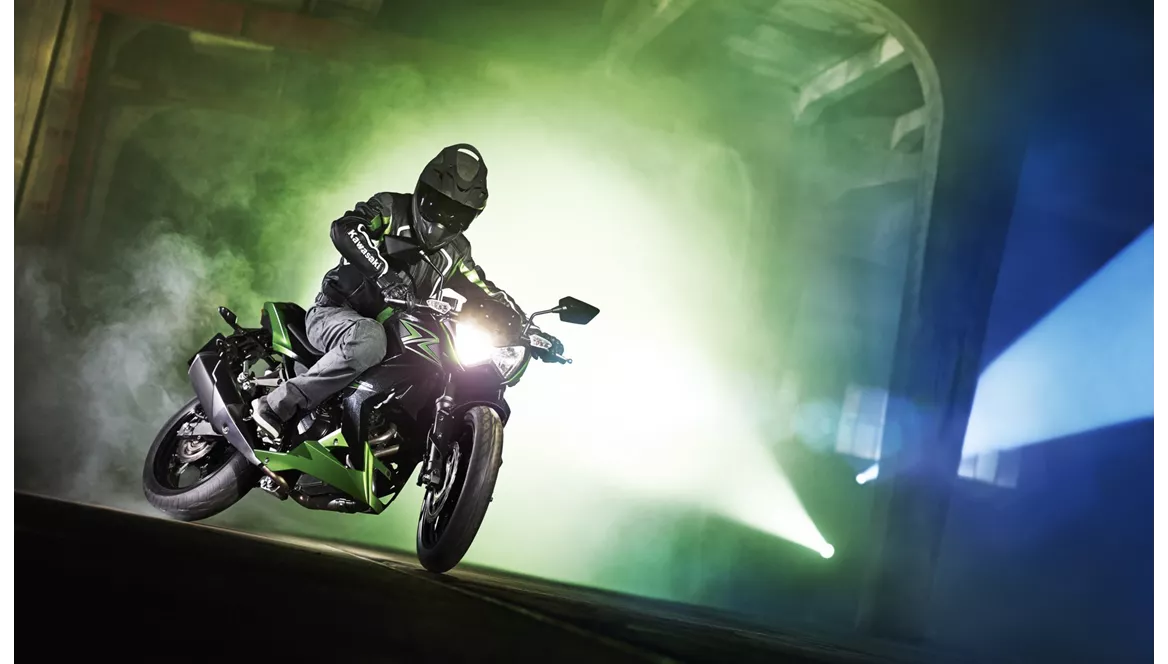
Kawasaki Z 300 2016
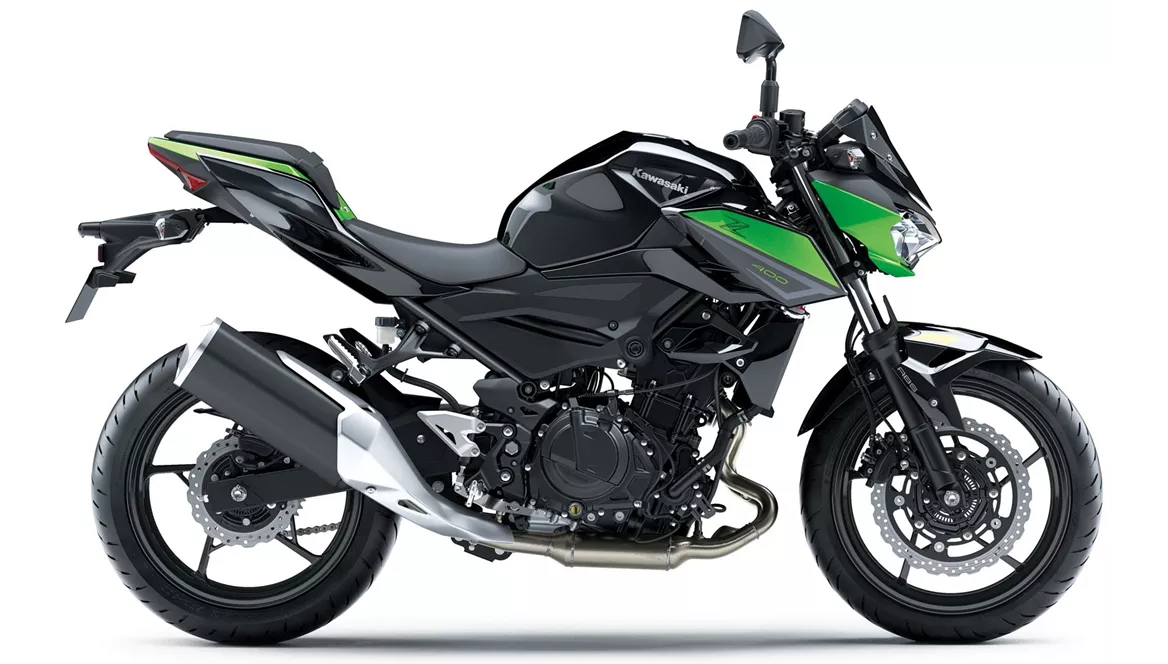
Kawasaki Z 400 2023
Overview - Kawasaki Z 300 2016 vs Kawasaki Z 400 2023
The Kawasaki Z 300 model year 2016 and the Kawasaki Z 400 model year 2023 are both naked bikes with similar technical specifications. Both bikes have an inline engine with 2 cylinders and liquid cooling. However, there are several differences between the two models.
In terms of engine power, the Kawasaki Z 400 2023 has a slight advantage with 45 HP compared to the Kawasaki Z 300 2016's 39 HP. The torque is also higher in the Z 400 with 37 Nm compared to the Z 300's 27 Nm. This means that the Z 400 will offer a more lively and powerful ride compared to the Z 300.
Both bikes have a steel frame and double piston front brakes with petal technology. This ensures stability and efficient braking for both models. The front tyre width and diameter are the same for both bikes, with a width of 110 mm and a diameter of 17 inches. However, the rear tyre width is slightly wider in the Z 400 with 150 mm compared to the Z 300's 140 mm. The wheelbase is also slightly shorter in the Z 400 with 1370 mm compared to the Z 300's 1405 mm.
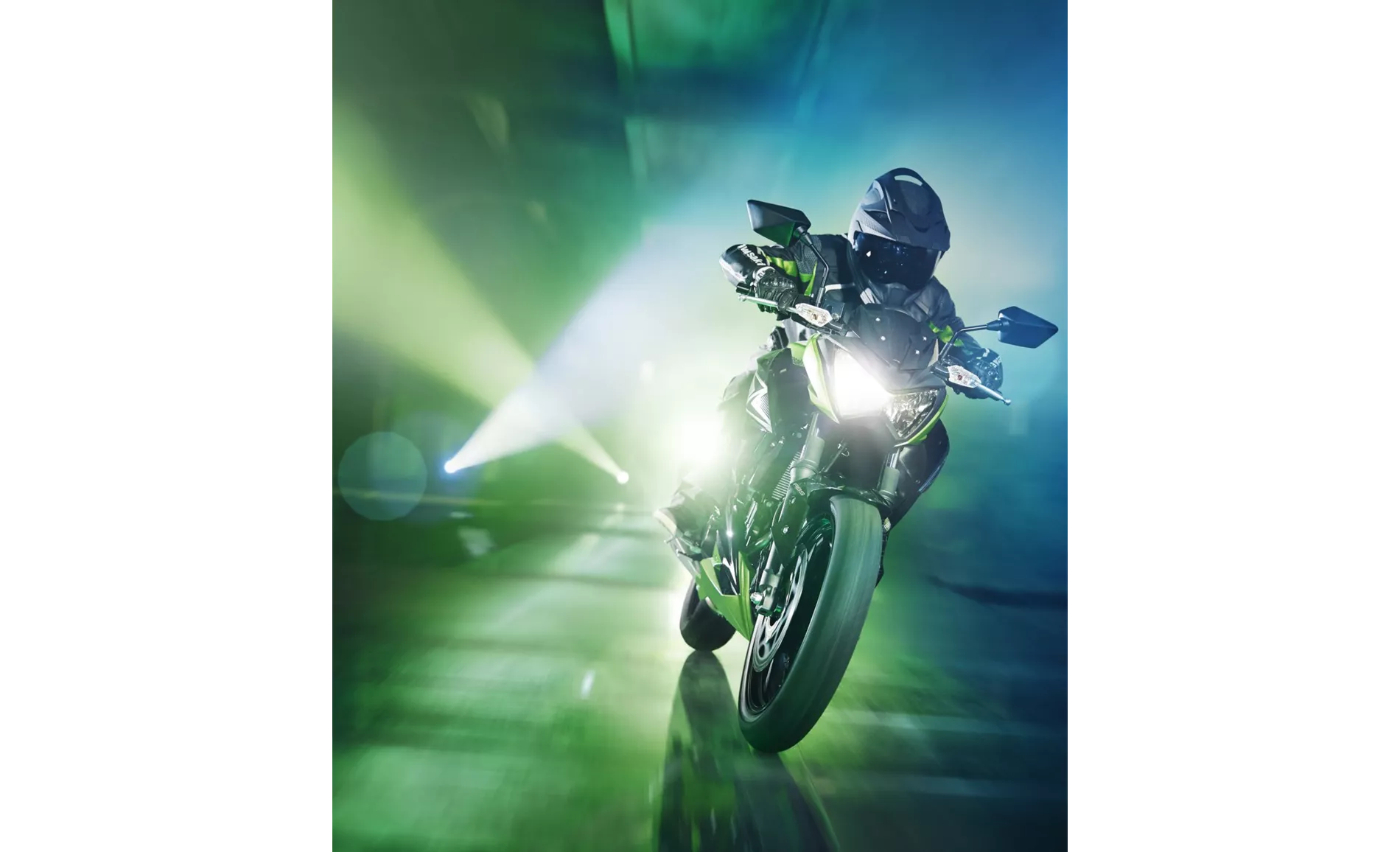
Kawasaki Z 300 2016
In terms of weight, the Z 400 is slightly lighter with a kerb weight of 167 kg compared to the Z 300's 170 kg (both with ABS). The fuel tank capacity is also smaller in the Z 400 with 14 liters compared to the Z 300's 17 liters.
When it comes to strengths, the Z 300 has an adult look with a high-quality finish. It also has a high-revving engine and a comfortable seating position. The brake is stable and the cockpit is easy to read and complete. Additionally, the Z 300 has low fuel consumption.
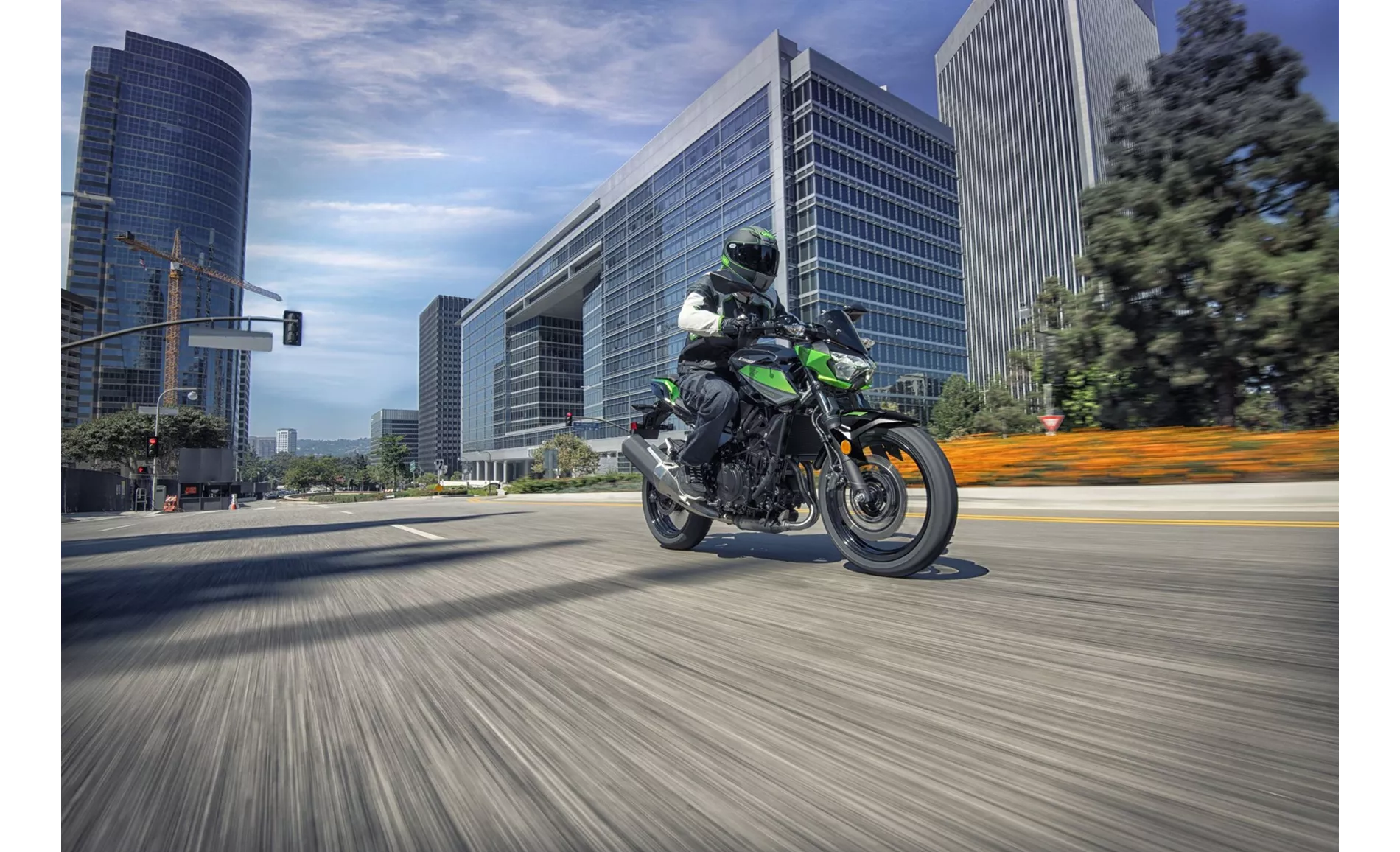
Kawasaki Z 400 2023
On the other hand, the Z 400 has a lively engine and offers good chassis and brakes. It has easy handling and a grown-up look with high-quality workmanship.
In terms of weaknesses, the Z 300 has a very unobtrusive sound and the engine only starts when idling. The Z 400, on the other hand, has non-adjustable levers.
Overall, the Kawasaki Z 400 2023 offers some improvements over the Z 300 2016 in terms of engine power, tyre width, and weight. However, both bikes have their own strengths and weaknesses, and the choice between the two would depend on the rider's preferences and priorities.
Technical Specifications Kawasaki Z 300 2016 compared to Kawasaki Z 400 2023
Pros and Cons in comparison
Pros and Cons in comparison
Kawasaki Z 300 2016
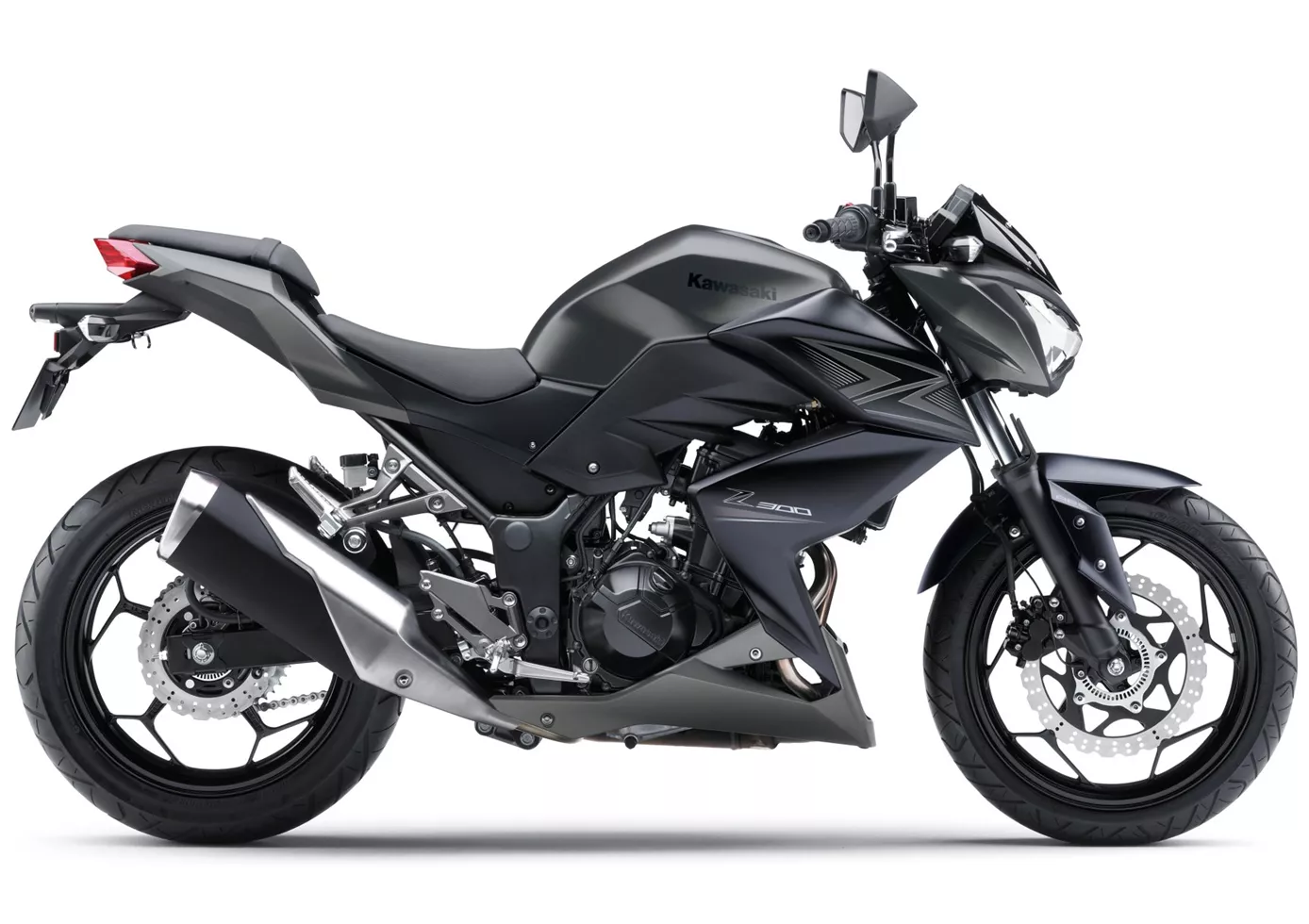
The cool design of the Kawasaki Z300, which is extremely similar to that of its big sister Z800, makes it a very grown-up-looking motorbike. The stable braking system and the easy-to-read cockpit with an analogue rev counter and all the necessary features fit in very well with this image. Thanks to the 170 kg ready-to-ride weight, the bike is extremely easy to handle and playful. The engine only reveals its potential in the upper rev range, but revs up willingly and makes you want to ride in a sporty manner. Only the comfort-oriented chassis cannot quite cope with radically sporty demands - but this is quite legitimate and understandable for an entry-level motorbike.
Kawasaki Z 400 2023
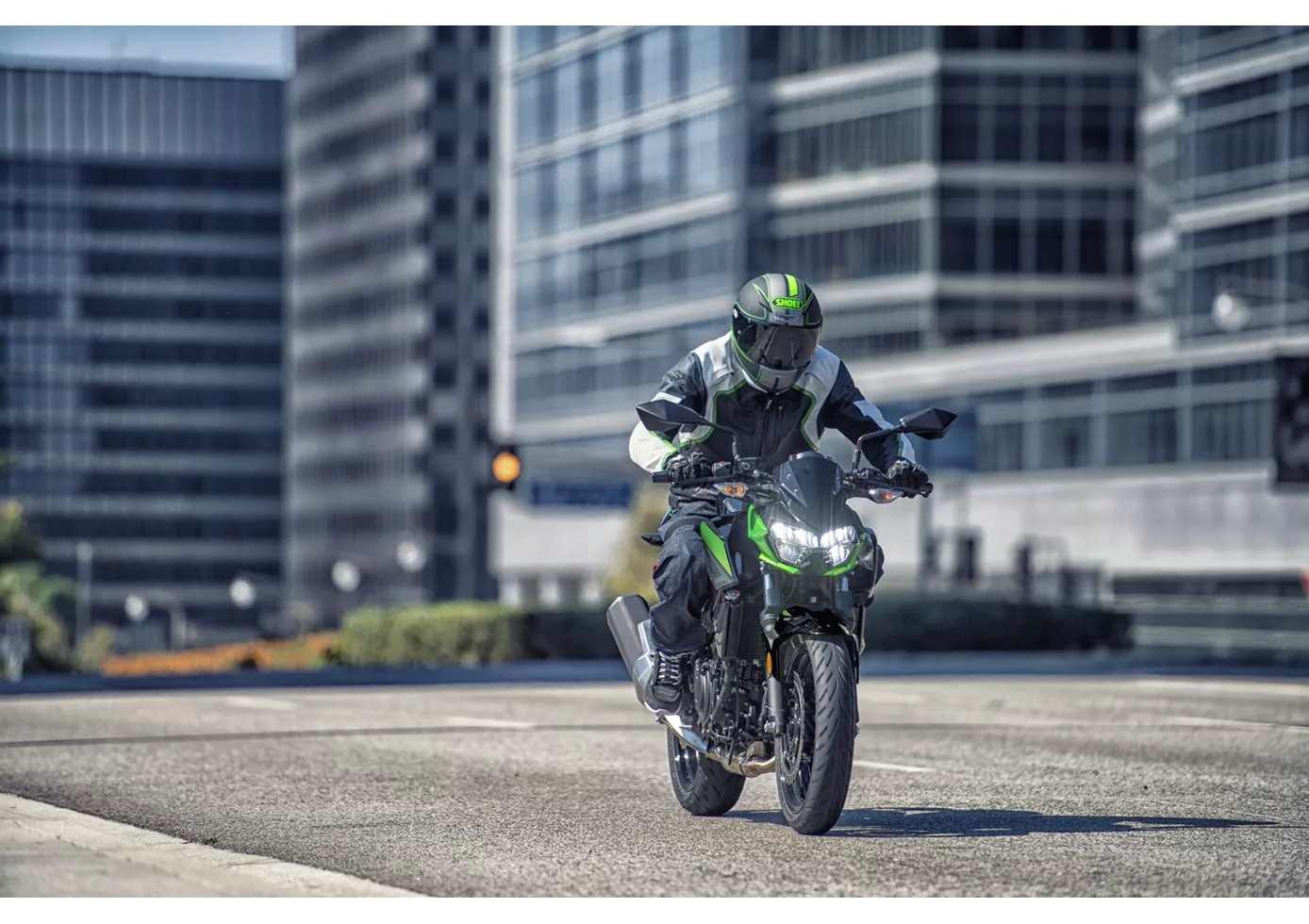
A cool and sensible entry into the A2 class. The Kawasaki Z400 scores points all along the line with its instinctive handling and the in-line two-cylinder, which convinces with good response and sufficient power. You can't go wrong with this naked bike and you can overlook the fact that the levers are not adjustable - after all, costs have to be saved somewhere.
Price Comparison Avarage Market Price Kawasaki Z 300 vs Kawasaki Z 400
There are a few key differences between a Kawasaki Z 300 2016 and a Kawasaki Z 400 2023. It takes less time to sell a Kawasaki Z 300 with 88 days compared to 123 days for a Kawasaki Z 400. Since model year 2015 1000PS.de editors have written 5 reviews for the Kawasaki Z 300 and 8 reviews for the Kawasaki Z 400 since model year 2019. The first review for the Kawasaki Z 300 was published on 11/4/2014 and now has more than 59,800 views. This compares to more than 23,200 views for the first review on Kawasaki Z 400 published on 10/2/2018.

